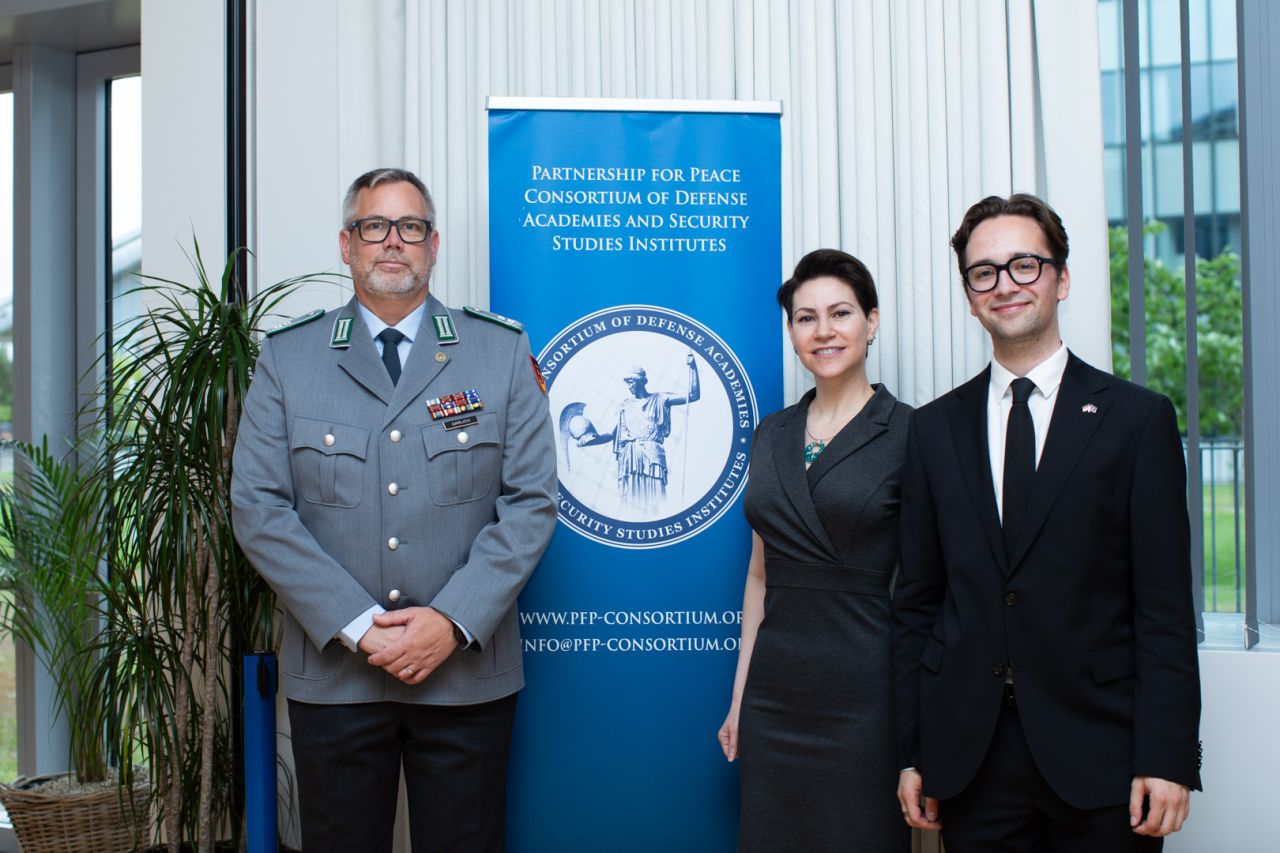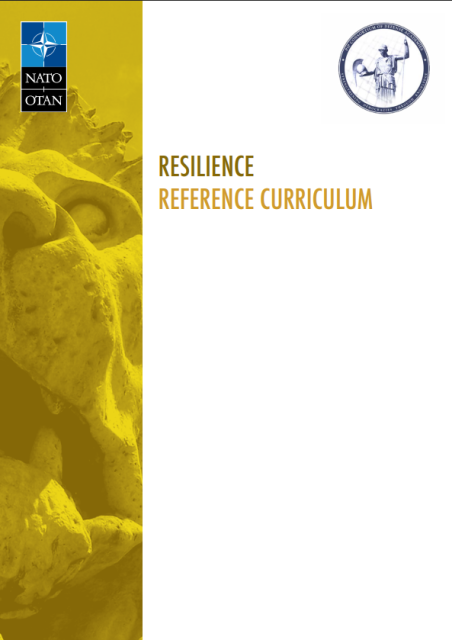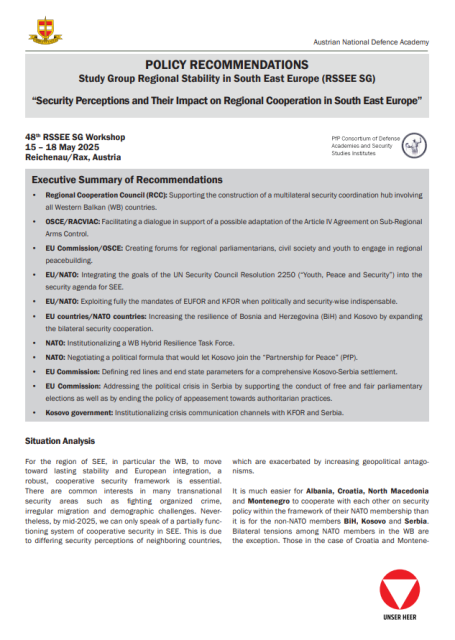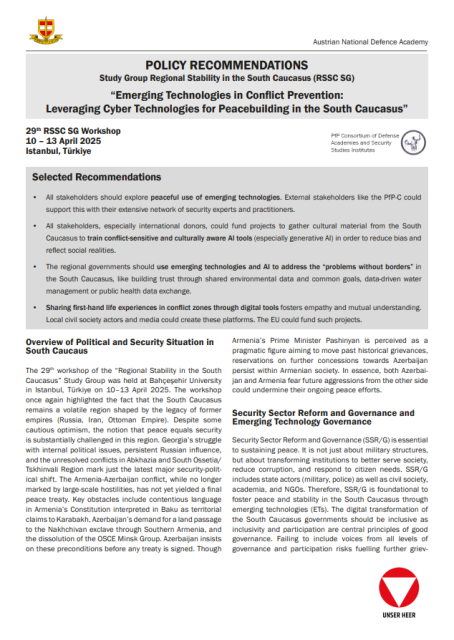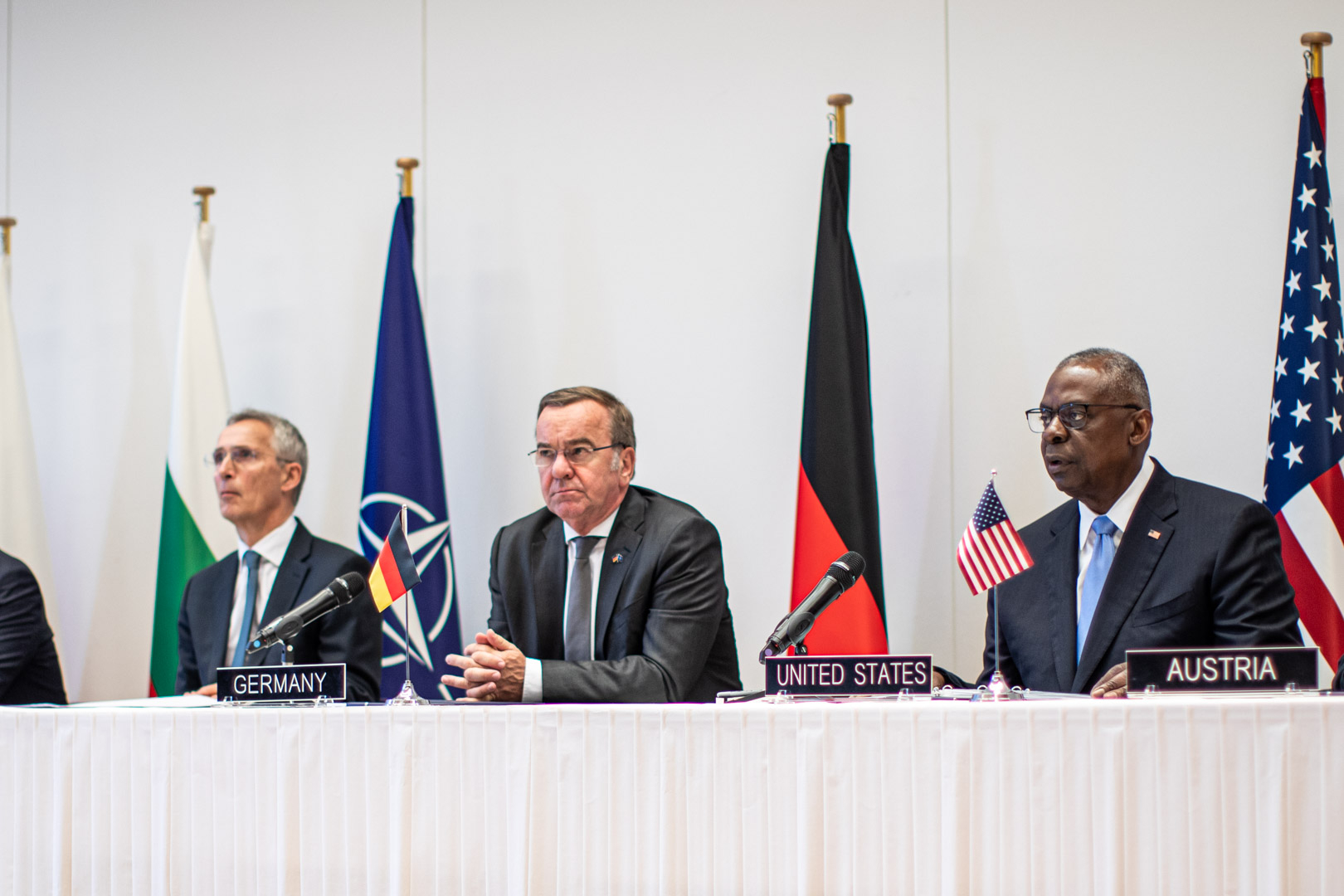
Brussels, Belgium - On June 14, 2024, defense leaders from eight nations, including U.S. Secretary of Defense Lloyd J. Austin and German Minister of Defense Boris Pistorius, along with NATO Secretary General Jens Stoltenberg convened a special session during the NATO Ministerial in Brussels to reaffirm their commitment to the Partnership for Peace Consortium of Defense Academies and Security Studies Institutes (PfPC).
Hosted at the initiative of German Federal Minister of Defense Boris Pistorius, the event recognized the persistent need for security cooperation across allied and partner defense academies and security studies institutes in the Euro-Atlantic region.
“We are here to celebrate PfPC’s 25th anniversary, which began as a bilateral initiative between our two countries (Germany and the U.S.) and now includes eight nations and NATO. We all know that in a rapidly declining security environment, collaboration and trust are highly important and needed more than ever before,” said German Minister of Defense Boris Pistorius.
Pistorius emphasized the Consortium’s support of the Defence Education Enhancement Programme (DEEP) as a win-win situation for allies and partners, helping partner countries to meet NATO standards and increase interoperability between allies and partners for effective execution of multinational missions and operations. He also credited the program for its work since 2014 in building Ukraine’s Non-Commissioned Officer capacity.
“A special success of this program is the creation of the Ukrainian Non-Commissioned Officer corps. We all know this has been essential for the operational effectiveness and resilience of the Ukraine Armed Forces in their fight for freedom and sovereignty. A fight which we need to continue to support for as long as it takes,” said Pistorius.
In further praising the accomplishments of the PfPC in promoting democratic values and sharing knowledge across security institutions, U.S. Secretary of Defense Lloyd J. Austin stated, “For a quarter century this Consortium has promoted dialogue, increased mutual understanding, and improved defense education. Since then, 13 democracies have joined NATO, and we have deepened our cooperation with countries beyond NATO as well.”
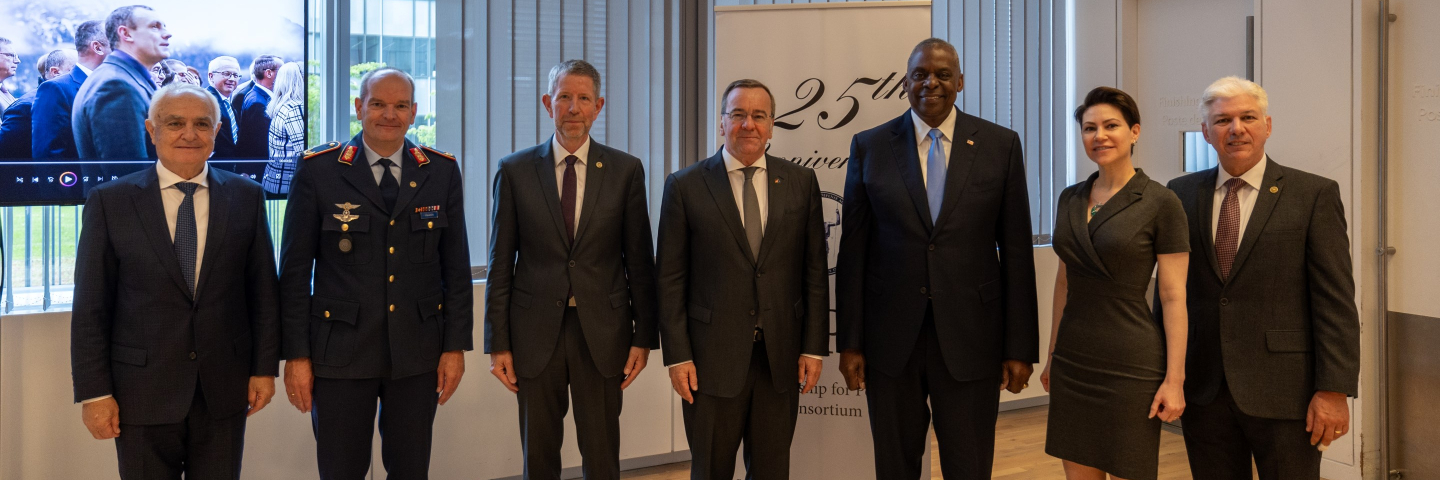
The ceremony highlighted a significant milestone as senior defense leaders signed the Letter of Intent, symbolizing their dedication to a “shared vision of enduring Euro-Atlantic partnerships."
The signatories of the Letter of Intent included:
- Austria: Dr. Arnold Kammel, Secretary General
- Bulgaria: Atanas Zapryanov, Minister of Defence
- Canada: Bill Blair, Minister of National Defence
- Germany: Boris Pistorius, Federal Minister of Defence
- Poland: Władysław Kosiniak-Kamysz, Minister of National Defence
- Sweden: Pål Jonson, Minister of Defence
- Switzerland: Ms. Pälvi Pulli, Deputy State Secretary for Security Policy
- United States of America: Lloyd J. Austin III, Secretary of Defense
After the signing ceremony, Minister Pistorius handed over the Letter of Intent to NATO Secretary General Jens Stoltenberg as a symbolic gesture of the continuous support of the PfPC to NATO.
“Congratulations on the 25th anniversary of PfPC. For 25 years you have helped build trust and cooperation with our partners, enhancing our intellectual interoperability. Today you celebrate this by signing this letter of intent, and thank you for handing it over to me,” said NATO Secretary General Jens Stoltenberg.
Established in 1999 by the U.S. and Germany, the PfPC was created to promote dialogue, mutual understanding, and defense education through institutional cooperation. It aims to foster meaningful cooperation among defense academies, security studies institutes, and experts from government and society, embodying the spirit of NATO’s Partnership for Peace program with greater flexibility. The PfPC focuses on three strategic areas: intellectual interoperability, security sector cooperation, and institutional capacity building.
Strategically, the PfPC is overseen by a Senior Advisory Council comprising military representatives at the general/flag officer or executive level from the United States, Germany, Austria, Bulgaria, Canada, Poland, Sweden, Switzerland, and the NATO International Staff. Operationally, PfPC activities are managed by the Secretariat, situated within the George C. Marshall Center in Garmisch-Partenkirchen, Germany, a bilateral security and defense regional center sponsored by the U.S. Department of Defense and the German Federal Ministry of Defense.
